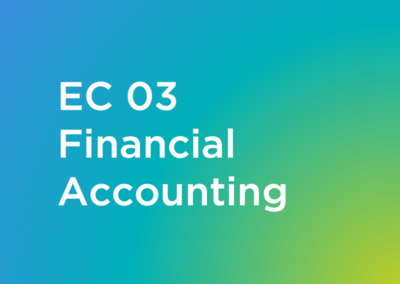Transform Ideas Into Action.
The Entrepreneurship (ENT) Minor develops your ability to transform ideas into action. You’ll build the entrepreneurial mindset and skillset to see opportunities, design solutions, and create meaningful change – in any organization or any field.
- Transform ideas into action through hands-on projects
- Identify problems worth solving and create innovative solutions
- Develop the bias for action that defines entrepreneurial leaders
- Learn from practitioner faculty who’ve built ventures and driven innovation
- Graduate ready to create change
Create Impact Anywhere
Being entrepreneurial isn’t only about starting companies (though some students do). It’s about developing a transformative way of thinking and acting that opens doors in any field—from launching new ventures to creating new initiatives in existing organizations to improving how nonprofits and government serve communities.
What You’ll Develop
Through in-class project work, in-company experiences, and learning from faculty who are practicing innovators, entrepreneurs, and investors, you’ll develop:
The Entrepreneurial Mindset
- Embrace a bias for action – ready to take the first step
- Creative and innovative – good at identifying problems worth solving and creating great solutions
- Agile, resilient and persistent – always finds a way forward
- See opportunities where others see obstacles
- Always learning and growing – embracing a growth mindset
The Entrepreneurial Skillset
- Know how to create a new venture
- Acquire fluency in the language of business
- Build proficiency in business skills
- Adopt an experimental and iterative approach to solve problems
- Develop strong team building and collaborative skills
- Acquire professional skills that accelerate career explorations
Confidence and Self-Knowledge
- Have explored your purpose, motivations, and core beliefs
- Have confidence in your own agency and resourcefulness
- Believe in your ability to learn what it takes to solve real problems
- Have acquired a human-centered, ethical approach to business and leadership
Your Entrepreneurial Journey
The Entrepreneurship Minor is highly customizable.
It is designed to deliver core business skills like finance, marketing, sales and leadership for everyone, while allowing students to customize their learning journey through a large collection of electives.
The ENT minor requires 15 credits that fits naturally into your schedule over 2-3 years
Foundation Course (3 Credits)
Build your entrepreneurial foundation by choosing one of the following courses:
Elective Courses
Complete your 15 credits and explore your interests through courses in areas of concentration, including all ENT, EM and TML Courses as well as additional courses from other departments.

TML/ENT010 Preparing New and Aspiring Leaders

TML/ENT011 Developing Financial Literacy

TML/ENT013 Essentials of Marketing

TML/ENT014 Planning your career pathway

TML/ENT015 Living a Life of Purpose (2 credits, Second Half)

ENT090 Paths to Entrepreneurship (2 credits, Second Half)

ENT100 Creativity, Innovation & Entrepreneurial Thinking

EE185/CVS149/ENT109 Societal Aspects of Design

TML112/ENT112 Vocal Arts for Personal And Professional Life

ENT142 Nonprofits, Philanthropy and Impact

ENT159 Art Entrepreneurship

ENT162 Bringing Products To Market

ENT163 Entrepreneurial Business Law

ENT164 Introduction to Making

ENT193.02 Lean Software Leadership

ENT193.04 Starting A Small Business

TML/EM/ENT193.05 Introduction To Intellectual Property

TML/EM/ENT193.06 Business Essentials

ENT194.01 Inside the Classroom (aka Classroom Operations Officers, or COO)

ENT198 Entrepreneurial Internship

ENT199 Entrepreneurial Field Study

ENT280/NUTR280J Nutrition and Entrepreneurship (Boston Campus)

ENT/EM/TML330 Transfer Credit

EC 03 – Financial Accounting

EC 50 – Introduction to Finance

EM 153 Management of Innovation

EM 51 Engineering Management

EM 52 Technical and Managerial Communications

EM 54 Engineering Leadership

TPS 58 – Public Speaking

UEP130/CVS183 Negotiation, Mediation, & Conflict Resolution
Where Entrepreneurial Leaders Make A Difference
ENT alumni create impact through new venture creation and/or applying their entrepreneurial mindset and skillset within an existing organization:
- User Experience and Product Designers
- Product Managers
- Marketers and Sales Leaders
- Financial Services Professionals
- Management Consultants









